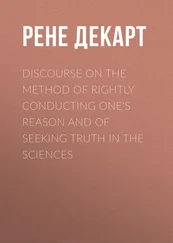race shall still continue:--
"So careful of the type it seems
So careless of the single life."
In short, we may say that the cosmic intelligence works by a Law of
Averages which allows a wide margin of accident and failure to the
individual.
But the progress towards higher intelligence is always in the direction of
narrowing down this margin of accident and taking the individual more and
more out of the law of averages, and substituting the law of individual
selection. In ordinary scientific language this is the survival of the
fittest. The reproduction of fish is on a scale that would choke the sea
with them if every individual survived; but the margin of destruction is
correspondingly enormous, and thus the law of averages simply keeps up the
normal proportion of the race. But at the other end of the scale,
reproduction is by no means thus enormously in excess of survival. True,
there is ample margin of accident and disease cutting off numbers of human
beings before they have gone through the average duration of life, but
still it is on a very different scale from the premature destruction of
hundreds of thousands as against the survival of one. It may, therefore, be
taken as an established fact that in proportion as intelligence advances
the individual ceases to be subject to a mere law of averages and has a
continually increasing power of controlling the conditions of his own
survival.
We see, therefore, that there is a marked distinction between the cosmic
intelligence and the individual intelligence, and that the factor which
differentiates the latter from the former is the presence of _individual_
volition. Now the business of Mental Science is to ascertain the relation
of this individual power of volition to the great cosmic law which provides
for the maintenance and advancement of the race; and the point to be
carefully noted is that the power of individual volition is itself the
outcome of the cosmic evolutionary principle at the point where it reaches
its highest level. The effort of Nature has always been upwards from the
time when only the lowest forms of life peopled the globe, and it has now
culminated in the production of a being with a mind capable of abstract
reasoning and a brain fitted to be the physical instrument of such a mind.
At this stage the all-creating Life-principle reproduces itself in a form
capable of recognizing the working of the evolutionary law, and the unity
and continuity of purpose running through the whole progression until now
indicates, beyond a doubt, that the place of such a being in the universal
scheme must be to introduce the operation of that factor which, up to this
point, has been, conspicuous by its absence--the factor, namely, of
intelligent individual volition. The evolution which has brought us up to
this standpoint has worked by a cosmic law of averages; it has been a
process in which the individual himself has not taken a conscious part. But
because he is what he is, and leads the van of the evolutionary procession,
if man is to evolve further, it can now only be by his own conscious
co-operation with the law which has brought him up to the standpoint where
he is able to realize that such a law exists. His evolution in the future
must be by conscious participation in the great work, and this can only be
effected by his own individual intelligence and effort. It is a process of
intelligent growth. No one else can grow for us: we must each grow for
ourselves; and this intelligent growth consists in our increasing
recognition of the universal law, which has brought us as far as we have
yet got, and of our own individual relation to that law, based upon the
fact that we ourselves are the most advanced product of it. It is a great
maxim that Nature obeys us precisely in proportion as we first obey Nature.
Let the electrician try to go counter to the principle that electricity
must always pass from a higher to a lower potential and he will effect
nothing; but let him submit in all things to this one fundamental law, and
he can make whatever particular applications of electrical power he will.
These considerations show us that what differentiates the higher from the
lower degree of intelligence is the recognition of its own self-hood, and
the more intelligent that recognition is, the greater will be the power.
The lower degree of self-recognition is that which only realizes itself as
an entity separate from all other entities, as the _ego_ distinguished from
the _non-ego_. But the higher degree of self-recognition is that which,
realizing its own spiritual nature, sees in all other forms, not so much
the _non-ego_, or that which is not itself, as the _alter-ego_, or that
which is itself in a different mode of expression. Now, it is this higher
degree of self-recognition that is the power by which the Mental Scientist
produces his results. For this reason it is imperative that he should
clearly understand the difference between Form and Being; that the one is
the mode of the relative and, the mark of subjection to conditions, and
that the other is the truth of the absolute and is that which controls
conditions.
Now this higher recognition of self as an individualization of pure spirit
must of necessity control all modes of spirit which have not yet reached
the same level of self-recognition. These lower modes of spirit are in
bondage to the law of their own being because they do not know the law;
and, therefore, the individual who has attained to this knowledge can
control them through that law. But to understand this we must inquire a
little further into the nature of spirit. I have already shown that the
grand scale of adaptation and adjustment of all parts of the cosmic scheme
to one another exhibits the presence _somewhere_ of a marvellous
intelligence, underlying the whole, and the question is, where is this
intelligence to be found? Ultimately we can only conceive of it as inherent
in some primordial substance which is the root of all those grosser modes
of matter which are known to us, whether visible to the physical eye, or
necessarily inferred by science from their perceptible effects. It is that
power which, in every species and in every individual, becomes that which
that species or individual is; and thus we can only conceive of it as a
self-forming intelligence inherent in the ultimate substance of which each
thing is a particular manifestation. That this primordial substance must be
considered as self-forming by an inherent intelligence abiding in itself
becomes evident from the fact that intelligence is the essential quality of
spirit; and if we were to conceive of the primordial substance as something
apart from spirit, then we should have to postulate some other power which
is neither spirit nor matter, and originates both; but this is only putting
the idea of a self-evolving power a step further back and asserting the
production of a lower grade of undifferentiated spirit by a higher, which
is both a purely gratuitous assumption and a contradiction of any idea we
can form of undifferentiated spirit at all. However far back, therefore, we
may relegate the original starting-point, we cannot avoid the conclusion
that, at that point, spirit contains the primary substance in itself, which
brings us back to the common statement that it made everything out of
nothing. We thus find two factors to the making of all things, Spirit
Читать дальше









![John Bruce - The Lettsomian Lectures on Diseases and Disorders of the Heart and Arteries in Middle and Advanced Life [1900-1901]](/books/749387/john-bruce-the-lettsomian-lectures-on-diseases-and-disorders-of-the-heart-and-arteries-in-middle-and-advanced-life-1900-1901-thumb.webp)

